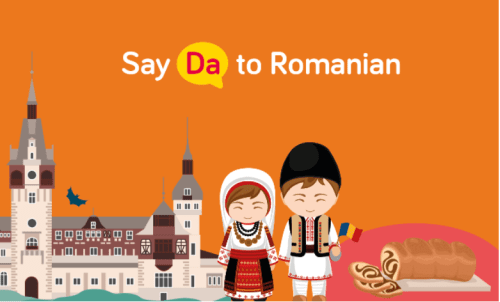
Few are aware that Romanian is a truly unique Romance language, with influences coming from all directions. While its Slavic roots constitute only 10% of the vocabulary, words have been borrowed over time from Bulgarian, German and Turkish to create an entirely distinct type of speech. Its interesting position in Eastern Europe has led many to mistakenly believe it belongs within the Slavic family; however those who take some time to explore will discover just how captivating this special dialect really can be.
Spoken in both Romania and the Republic of Moldova
Romania and Moldova have remained inextricably linked through language despite a tumultuous history. After the Soviet Union annexed what was then known as Basarabia, now modern-day Republic of Moldova, Romanian maintained its status as an official language until present day - acting as a unifying tie between these two Balkan states.
The Romanian language is 1,700 years old
Romanian started forming at the beginning of the second century when the Romans conquered the territory of Dacia, located in the territory that would become Romania. Roman culture and language influenced the Dacian community, which eventually started using Vulgar Latin (common Roman) as their language.
It’s the only Romance language that prevailed in Eastern Europe
One of the great mysteries throughout history has been how the Romanian language, with its Latin roots, persevered in a region that was repeatedly invaded by other populations. Despite their powerful presence and influence on elements like culture and religion, Slavic peoples were unable to supplant or alter Romania's linguistic ties to Roman antiquity - an incredible testament to this nation’s cultural resilience.
You can understand Romanian if you’ve studied other Romance languages
If you know some Italian, Spanish or French, you can comprehend Romanian. Several basic words are very similar to their Western European counterparts: bine is almost the same as the French and Spanish bien or the Italian bene; bun, same as bon, bueno; cu plăcere is similar to con piacere and avec plaisir; and pardon is an actual French word.
Romanian is a phonetic language
Actually, once you learn the vocabulary, Romanian is easy to read or speak. Being a phonetic language, all the words are pronounced exactly as they are spelt.
There are 5 special letters in Romanian
Romanian may be tricky for foreign language-learners due to its unique diacritics. The 'ă' sound is similar to the second syllable in "magical", while 'ș' and 'ț', respectively, are pronounced like English's ‘sh’ and ‘ts’; the last two letters - â and î - can prove most challenging! Pay attention next time you hear someone say România: observe how a brief schwa appears before concluding with an intonation resembling one of roses's final syllables.
A Romance language with interesting grammar
When learning Romanian, you may have difficulty with the grammar. This is mainly because of its Macedonian, Bulgarian, Albanian and Serbian influences, as well as the fact that it was developed far from the other Romance languages. Still, contrary to other Latin languages, Romanian has kept the Latin morphological case differentiation: nominative, genitive and vocative.
There are four dialects of Romanian spoken in the Balkanic countries
The Roman legacy lives on in Romania and its neighbouring countries, through the unique Aromanian, Megleno-Romanian and Istro-Romanian dialects found south of the Danube. Spoken from Serbia to Croatia these languages are a testament to centuries old cultural exchange across Europe's Eastern frontier.
You actually know how to speak it
You’ve surely heard the famous song Dragostea din tei. If you listen to it, you will realize that you actually know all the lyrics by heart, even if you have no idea what they mean. The song, interpreted by the Moldovan band O-Zone, has been quite a phenomenon, and many people have been introduced to the language because of it.
Recent Posts

Understanding Translation Serv...

Agenzia di Traduzione a Roma: ...

Die Essentielle Rolle von Übe...

Die Essentielle Rolle von Übe...

Die Essentielle Rolle von Übe...

La Traduction Assermentée: Un...
Share it.
© Copyright 2022 LLC


